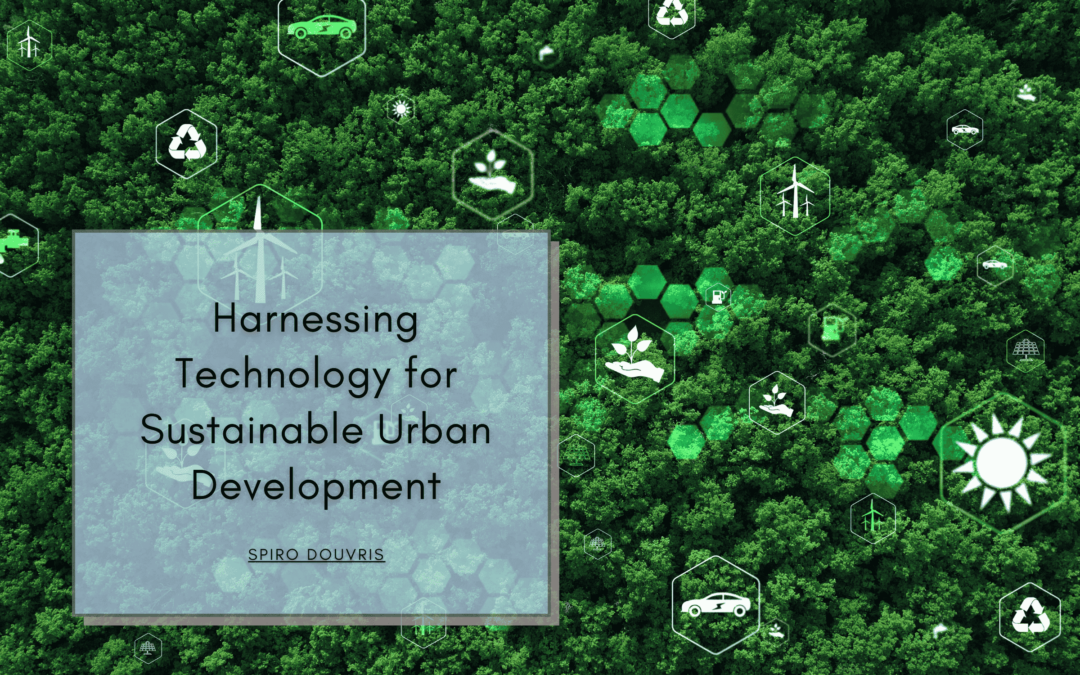In an era marked by rapid urbanization and environmental challenges, sustainable urban development has gained traction as cities seek innovative solutions to promote economic prosperity, social equity, and environmental stewardship. With its transformative potential, technology has emerged as a powerful tool for driving sustainability in urban areas. Let’s explore how cities are harnessing technology to foster sustainable urban development.
- Smart Infrastructure and Energy Management: One of the key components of sustainable urban development is the implementation of smart infrastructure and energy management systems. Smart grids, sensors, and IoT (Internet of Things) devices enable cities to monitor and optimize energy usage, reduce waste, and improve the efficiency of public services such as lighting, transportation, and waste management. By leveraging real-time data and analytics, cities can identify areas for improvement and make informed decisions to enhance resource efficiency and reduce carbon emissions.
- Green Building and Urban Design: Technology plays a crucial role in promoting green building practices and sustainable urban design. Building Information Modeling (BIM) software allows architects and developers to design and construct energy-efficient buildings that minimize environmental impact and maximize occupant comfort. Virtual reality (VR) and augmented reality (AR) tools enable urban planners and policymakers to visualize and simulate urban development projects, allowing for more informed decision-making and stakeholder engagement. Additionally, green infrastructure solutions such as green roofs, permeable pavement, and rain gardens help mitigate the urban heat island effect, improve air quality, and enhance resilience to climate change.
- Mobility Solutions and Transportation Planning: Sustainable transportation is a cornerstone of urban development, and technology drives innovation in this area. Electric vehicles (EVs), autonomous vehicles (AVs), and shared mobility services such as ride-hailing, bike-sharing, and carpooling are transforming how people move around cities, reducing traffic congestion and air pollution. Advanced transportation planning tools and predictive analytics help cities optimize public transit systems, design bike-friendly infrastructure, and implement mobility-as-a-service (MaaS) platforms that integrate various modes of transportation for seamless urban mobility.
- Digital Governance and Citizen Engagement: Technology empowers citizens to actively participate in the decision-making process and contribute to sustainable urban development efforts. Digital governance platforms, mobile apps, and online portals enable residents to report issues, provide feedback, and participate in community initiatives, fostering transparency, accountability, and civic engagement. Open data initiatives and data visualization tools also help city governments and stakeholders analyze and share data on key urban indicators such as air quality, energy consumption, and carbon emissions, facilitating evidence-based policymaking and collaborative problem-solving.
- Resilience and Disaster Management: Climate change and natural disasters pose significant challenges to urban resilience, but technology can help cities better prepare for and respond to these threats. Predictive modeling, remote sensing, and Geographic Information Systems (GIS) enable cities to assess climate risks, identify vulnerable areas, and develop adaptive strategies to mitigate the impacts of extreme weather events and natural disasters. Early warning systems, real-time monitoring, and communication technologies enhance emergency preparedness and coordination, ensuring a swift and effective response to crisis situations.
Technology is a powerful enabler of sustainable urban development, offering cities innovative tools and solutions to address complex challenges and build resilient, livable, and inclusive urban environments. By harnessing the transformative potential of technology, cities can unlock new opportunities for economic growth, social equity, and environmental sustainability, paving the way for a brighter and more sustainable future for urban dwellers worldwide.

